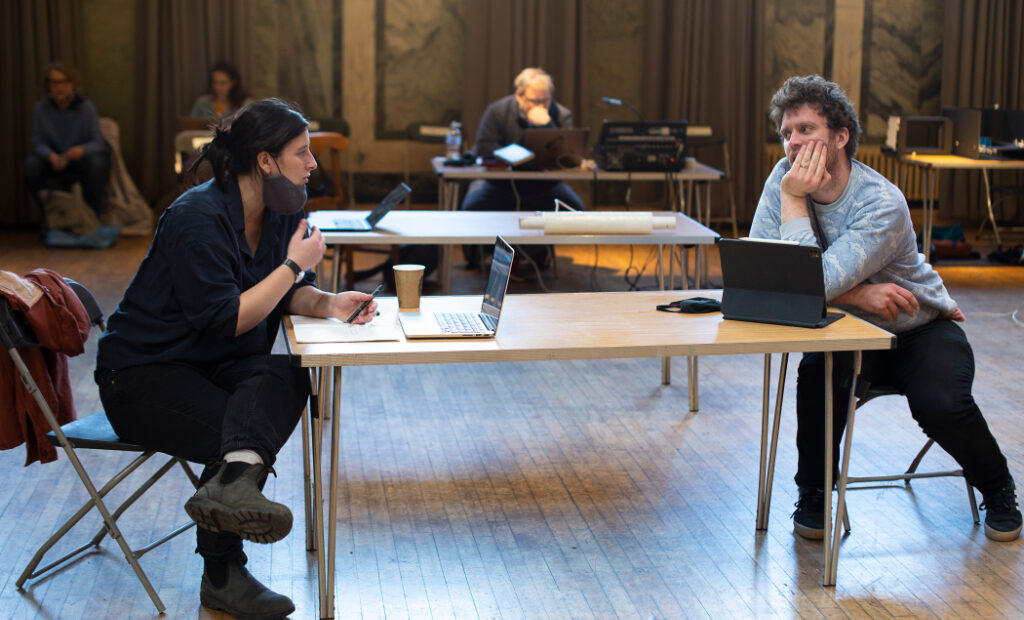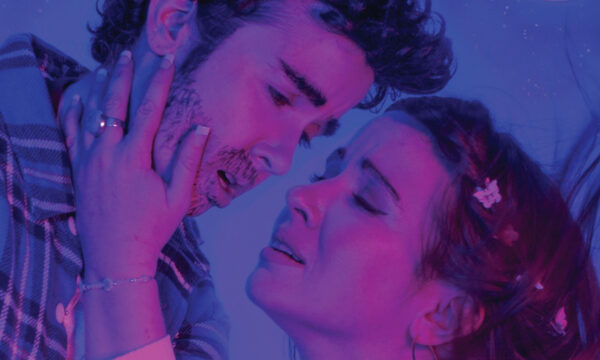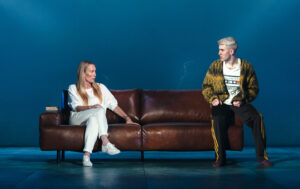The Language of Kindness: An interview with James Yeatman

Co-produced with Assembly Hall Theatre Tunbridge Wells, Complicité and Warwick Arts Centre and in association with Shoreditch Town Hall and Guy Chapman; The Language of Kindness tells tales of warm hearts and the treasure in caring for others. Based on the best-selling memoir by Christie Watson – detailing her 20-year experience as an NHS nurse – the production comes at an important transition into the only kind of normal achieved post-pandemic life.
As the world slips back into routines and typical everyday life, The Language of Kindness is a constant and persistent reminder of the importance of healthcare workers, even without the overwhelming presence of the pandemic. The Upcoming caught up with director James Yeatman as he recaps the behind-the-scenes effort of the production, and the incorporation of acts of social distancing into its storytelling.
How did you first come into contact with The Language of Kindness and what made you want to be part of this particular production?
Judith Dimant—producer extraordinaire—got the stage rights for the book three or four years ago, and she got Sasha to do a workshop on it. I’ve known Sasha and Judith for ten years – when Judith was at Complicité and Sasha and I were assistant directors on The Master and Margarita. I’ve had quite a lot of experience adapting books as part of a devising process with Complicité, and with my own company, Kandinsky. After the first workshop, I was brought in as a director with a kind of eye for the dramaturgy and text, pursuing Sasha’s instinct that this should be a show that had movement at the heart of it. I wanted to be part of it because I love working in more movement/dance-based theatre and don’t know how to do it. So, it’s been a real privilege to work with Sasha on this. Also, all of us go back a long way.
This story and highlighting the importance of nurses is vital, now more than ever. Are you connected with any frontline nurses who have worked during the pandemic? Did you hear any stories from them that really made an impact?
I come from a very medical family; my dad and my brother are doctors, while my mum is a speech therapist. Representing the health service accurately and compassionately is important to me. I don’t know any frontline nurses, but I did actually find myself in the hospital for 2 weeks last May – not with Covid – where I was cared for by the incredible nurses on the Matthew Whiting Ward at King’s in South London. It was quite a traumatic moment in my life and I know I will always be grateful to those people – Jeanne, Lois, Jay-Ar, this is for you! When I needed care, it was given to me with both skill and incredible kindness. I want nurses to feel that their experience is up there on stage, somehow.
How closely have you worked with Christie Watson on adapting her story?
Christie has been to see us in several workshops and seen the progress of the show from its beginning. All the songs in the show are chosen by her. Most recently, she came in and showed us how to resuscitate someone who’s had a cardiac arrest.
How has it been to work with the ensemble cast? What do they bring to the storytelling of this performance?
All my work is made in collaboration with an ensemble. While I do loads of work before rehearsals start in terms of working out a shape and style for the performance, ultimately – everything is made with and for that particular group of actors.
What was the experience like directing during the pandemic? What were the challenges you faced with the social distancing rules?
The Covid aesthetic informs the whole production. Even though we don’t really mention Covid in the content of the show, no actors can touch or be within two metres of each other unless they’re wearing a mask. Luckily, because it’s a show about nurses, we’re allowed to wear PPE as part of the performance. But it’s [also just] built into every movement and interaction in the show. This obviously creates a million challenges – not just talking while wearing masks – that we hope we have found creative solutions for. But there has been a bittersweet pleasure in trying to find ways to show things – like hugging while not actually doing it – [and] in finding ways to remind us of the things we have lost, without actually being able to do them – yet.
What has been the one thing, upon finally rehearsing for a live physical audience, that you have missed about live theatre?
Mainly at this stage of rehearsals, I just feel terror about putting the play in front of a live physical audience. But it is thrilling to be in a room with each other, singing together in warmups, making each other laugh. A few times in run-throughs, we’ve had scenes that have that special silence – where everyone in the room is listening intently and you realise that’s something you haven’t had.
Is there a different kind of energy to performing after everything that’s happened? Or does it feel the same?
I mean, let’s wait and see what the shows feel like! I have no idea what an audience wants to see after all this. There’s a real feeling of not knowing.
Are there any lessons working on this production that you feel you would use in the future as we move to a post-pandemic life?
I’m grateful to have had the chance to work on something that can so quickly allow me to respond with a gesture of gratitude to how I was treated when I was sick. I think if this show can do anything, it’s to show the job of nurses as an extremely complex, multi-faceted thing. Which, to do well [and so far as I understand], involves an incredible mix of technical and academic skill, with the ability to care and empathise for your patients. I guess, always remembering to acknowledge that we are lucky to have the system of care that’s available to us is something to carry forward and that it needs to be fought for. In terms of theatre, I am of course glad to be working again. But, in the nicest possible way, it’s nice that it feels like the same old thing.
Mae Trumata
The Language of Kindness is available at Warwick Arts Center, Assembly Hall Theatre Tunbridge Wells and Shoreditch Town Hall from 20th of May to 12th of June. For further information or to book visit Wayward Productions’ website here.

























Facebook
Twitter
Instagram
YouTube
RSS